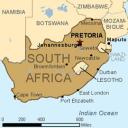– Everyone who thinks that we live in representative democracies should consider this: The vast vast majority of us detest Spam – and yet, it is still here.
– We have a war on drugs and wars on poverty and ‘no child left behind’ programs. But, has the might of the government that is suppose to be a reflection of the will of its people seen fit to declare war on Spam? Nope. You have to wonder why.
– And once you begin to pull on that thread, there’s no telling where it might take you.
– And I’m not just talking about the U.S. here. All you you out there who think you live under representative governments, just look around you at various issues that clearly have a majority of public sentiment behind them – and yet they never seem to go anywhere.
– Recently, in New Zealand, a poll was published that indicated that 85% of the NZ public thinks talking on cell phones should be banned while driving. You’d think in a representative democracy, that would have the elected folks sitting up and taking notice and falling over themselves to introduce the bill and associate themselves with the bill that would implement the public will. But, sometimes the silence is deafening after one of these polls.
5-Apr-08 – a nice follow-on:Â Here’s an article ➡ that asserts that 81% of Americans polled think America’s on the wrong path. Â Now, what do we think the chances are that these opinions will result in a change in the country’s directions? Â Â Slim and none I’d say – but then I’m a bit of a cynic.
= = = = = = = = = = = = = = = = = =
Spam continues to blight e-mail exactly 15 years after the term was first coined and almost 30 years since the first spam message was sent.
The term is thought to have been coined by Joel Furr, an administrator on the net discussion system Usenet, to refer to unsolicited bulk messages.
More than 90% of all e-mail is spam, according to anti-spam body Spamhaus.
“Spam is a real life arms race,” said Mark Sunner, chief analyst at online security firm Message Labs.
Billions of spam e-mails are sent each day, blocking mail servers, slowing down networks, infecting people’s computers with viruses, helping hijack machines and generally making the internet a painful experience for many.
Mr Furr told BBC News that the anniversary of his first use of the term was no cause for celebration.
More… ➡

